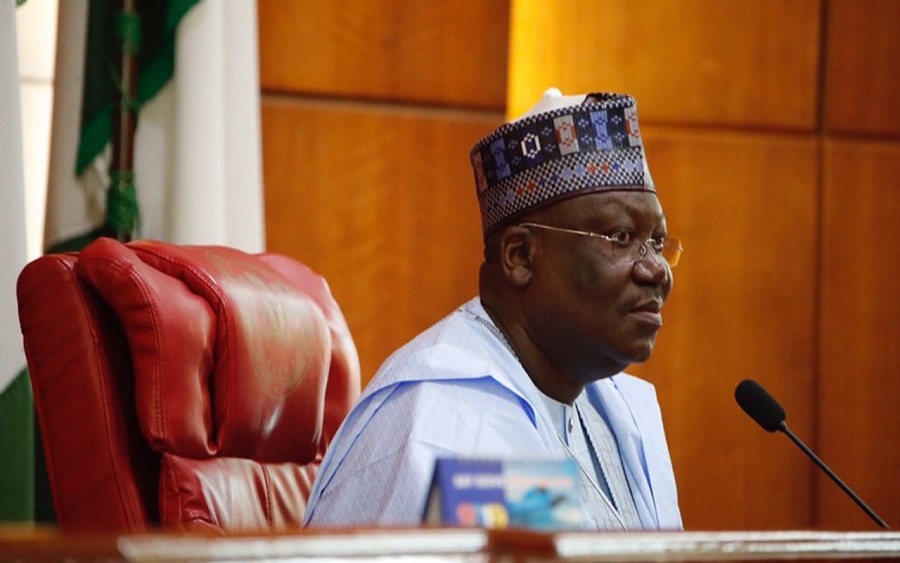Senate President Ahmad Lawan, on Wednesday, said that the Senate would consult with the House of Representatives on how to respond to President Muhammadu Buhari’s letter on the Electoral Act (Amendment) Bill.
Sen. Lawan made this known after the upper chamber rose from a closed session to deliberate on the President’s decision to withhold assent to the electoral bill passed by the National Assembly.
According to the Senate President, the provisions of the 1999 Constitution (as amended) does not permit the upper chamber to exclusively take any action on such matters in the absence of the House of Representatives, since the latter has embarked on recess.
READ ALSO: http://Kaduna can feed the Igbo of South-East – Gov. el-Rufai
He, however, assured that a joint position would be reached with the House after due consultation with Nigerians to determine the appropriate line of action when both chambers reconvene from the Christmas break in January.
Speaking on what transpired in the closed session, Lawan said, “The Senate in a closed session deliberated on matters relevant to the workings of the Senate in particular and, the National Assembly in general.
“The Senate also in the closed session discussed how to respond to the letter from Mr. President on the electoral bill amendment.
“The Senate consequently resolved to consult with the House of Representatives in January when both the Senate and House will be in session.
“Presently, the House of Reps has gone or recess and like we all know, the constitutional provision is for the Senate and House of Representatives to jointly take the appropriate action.
“The Senate also resolved to consult with our constituents during our recess in January.
“The Senate believes that our constituents have a role to play as the major stakeholders in the laws that we make in the National Assembly.”
READ ALSO: http://I’ll be available for AFCON 100% — Osimhen
President Buhari in the letter dated December 13, 2021, had explained that his decision to withhold assent to the electoral bill was informed by advice from relevant Ministries, Departments and Agencies of Government after a thorough review.
According to the President, signing the bill into law would have serious adverse legal, financial, economic and security consequences on the country, particularly in view of Nigeria’s peculiarities.
He added that it would also impact negatively on the rights of citizens to participate in the government as constitutionally ensured.


